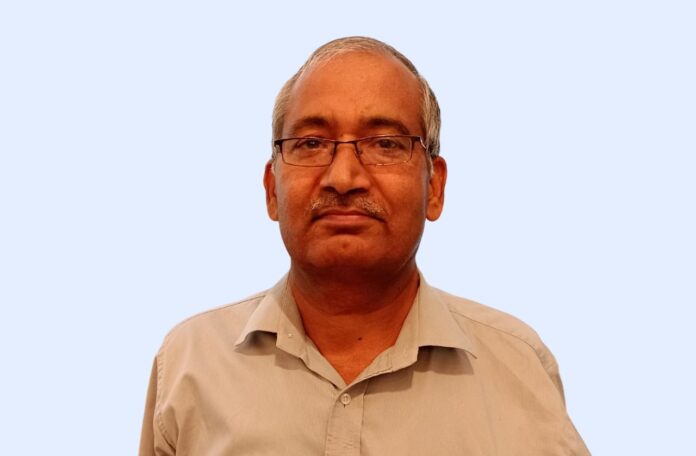Er. Dr. S.P. Sharma, chairman of Harihar Energy Enterprises, spearheads the company’s endeavors in developing eco-friendly technologies for energy, agriculture, and waste management sectors. With a diverse background encompassing Harvard business mentorship, expertise in thermal power, and proficiency in homeopathic medicine, Dr. Sharma serves as the director of Lifeline400 Virtual Hospital. His innovative approach integrates engineering principles into medical treatments, particularly for chronic diseases.
Graduating in mechanical engineering from IIT Roorkee, Dr. Sharma boasts four decades of experience with NTPC, India’s premier public sector enterprise in power generation. Alongside, he holds a plethora of qualifications including a BMBS (Engineering Medicine), an MBA in HR from IGNOU, and pursuing a PhD in Longevity from Aligarh Muslim University.
In an exclusive interaction with The Interview World, Er. Dr. S.P. Sharma sheds light on engineering medicine, innovations in chronic disease treatment, and the holistic approach to homeopathic medicine. Here, we present the key insights gleaned from his interview.
Q: What are the applications of engineering medicine, and how does it integrate engineering principles into medical practice?
A: In the realm of engineering medicine, we don’t see the human body as a biological entity, rather we look at it as a marvelously intricate machine, with each organ and system serving a specific function akin to components in a well-designed mechanism. This perspective enables a comprehensive understanding of how the body operates, likening it to a miniaturized power plant where food acts as fuel, undergoing intricate processes to extract energy while expelling waste products through processes like digestion and excretion.
Crucially, this mechanistic viewpoint facilitates pinpointing the origins of any malfunctions or health issues. The interconnectedness of major organs—such as the brain, heart, lungs, liver, kidney, and intestine—means that disruptions in one area can reverberate throughout the entire system, affecting overall health and function. By recognizing this interdependence, healthcare professionals can better diagnose and address underlying causes.
Moreover, the human body possesses a remarkable capacity for self-repair and regeneration. Given the right conditions and support, it can often correct imbalances and heal injuries without external intervention. This inherent resilience underscores the efficiency and adaptability of the human machine, highlighting the importance of holistic approaches to healthcare that nurture and harness the body’s natural healing mechanisms.
Q: What specific advancements or innovations have you made in the field of medicine, and could you elaborate on their significance and impact?
A: Migraines, like many health issues, are a simple imbalance in the body’s pH levels. By experimenting with migraine management, I discovered a direct correlation between low pH levels and migraine episodes. We can easily monitor the pH balance of the body through urine analysis, as urine serves as an indicator of internal processes.
When the pH levels drop, indicating an excess of hydrochloric acid in the body, the brain registers this imbalance, often triggering a headache. However, adjusting the pH balance is relatively straightforward. By incorporating alkaline foods into one’s diet, the pH levels can be increased.
As the pH balance reaches the optimal level, reflected in the rise of urine pH, migraine symptoms tend to dissipate. This natural approach offers a clear understanding of the issue and is relatively simple to maintain. Once the pH stabilizes at a neutral point, migraine pain typically diminishes.
Given the effectiveness of natural methods in managing migraines, resorting to medications may become unnecessary. In my experience, similar principles have been applied successfully in treating conditions such as blood cancer, lung infections, liver infections, and kidney rejuvenation.
Q: What treatment processes do you typically recommend or prescribe for your patients?
A: First, I review the person’s blood report to identify any deviations in the blood parameters, which should ideally fall within a healthy range. However, the normal range provided in typical blood reports is often quite broad, leading doctors to simply remark that it falls within the range, which isn’t particularly helpful. The goal is for these parameters to be within a very narrow and precise healthy range.
When blood parameters deviate from this healthy range, it’s important to take action to bring them back into alignment. This may involve treatments aimed at addressing underlying issues, such as liver health or other concerns.
In my approach, I incorporate homeopathy alongside any allopathic treatments individuals may already be undergoing. I advise patients to take homeopathic medicine separately, typically about half an hour after allopathic medication, and to supplement their treatment with select natural inputs, including specific dietary recommendations.
As patients gradually experience the benefits, I encourage them to consider reducing or discontinuing their use of allopathic or other medications, in favor of prioritizing homeopathy and embracing a natural lifestyle.
Ultimately, I recommend dedicating more time to homeopathic treatments and adopting a holistic approach to health. Over time, individuals may find that they can rely less on medication altogether. Moreover, they can transition towards a more balanced and sustainable approach to wellness.
Q: What are the key factors influencing the differential adoption rates between homeopathic remedies and allopathic medicines within society?
A: Homeopathic doctors have made a critical error by not directly prescribing medicines. Instead, they prefer to administer them personally without providing written prescriptions. This practice is detrimental for several reasons. Firstly, it hinders transparency and awareness regarding the medications being administered. Unlike allopathic medicines, where patients are often informed about the prescribed drugs, the lack of clarity in homeopathic prescriptions reduces societal trust and acceptance.
Therefore, it is imperative to adopt a more transparent approach to prescribing homeopathic medicines. This entails providing patients with clear prescriptions, detailing the medications and their dosages. By doing so, patients gain autonomy over their treatment. We can enable them to take preventive measures independently, even in situations where they cannot immediately consult a healthcare provider.
Homeopathy, renowned for its preventive properties, empowers individuals to take proactive steps towards their health. Thus, by embracing transparent prescribing practices, we not only enhance patient autonomy but also foster a deeper understanding and acceptance of homeopathic treatments within society.
Q: What role does homeopathy play in a comprehensive approach to holistic treatment?
A: Allopathy, characterized by its non-holistic approach, stands in contrast to the comprehensive methodologies of ayurveda, homeopathy, and naturopathy. When combating infections, it’s essential to address the root cause. While bacterial infections may necessitate antibiotics, viral infections find optimal treatment in homeopathy. Homeopathic remedies boast remarkable efficacy, often delivering noticeable benefits within a mere two to three days. This effectiveness is not merely anecdotal but substantiated by tangible evidence observed in blood and pathological reports. Such empirical validation underscores the profound advantages of embracing homeopathic medicine as a potent alternative in the realm of healthcare.




Insight provided by Dr Sharma is helpful.
Hi there! This post couldn’t be written any better! Reading through this post reminds me of my previous room mate! He always kept talking about this. I will forward this article to him. Pretty sure he will have a good read. Thank you for sharing!
Some times its a pain in the ass to read what people wrote but this web site is really user pleasant! .